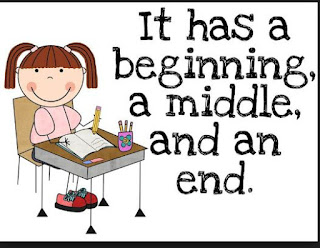A note on writing narrative history - from my desk as I sit with a broken foot!!!
I have been hamstrung with a foot fracture and now had an operation on the foot and have spent many days and hours now sitting as I am unable to put the foot down ,,,a few weeks to go.
But what this hiatus in my normally physically active life has led me do is to look at some of my notes from the many workshops I have presented over the last 30 odd years...of course you can read so much on the internet now that is useful and specific to your writing of family or local history, also memoir or biography.
At the same time writing remains one of the more difficult tasks to do well. None of us are born writers, and good writing will always be a product of practice, practice, practice. I have written many words, have been published and am mostly able to produce readable prose but each time I sit down to write it is not always easy to construct the historical story that will have both a universal appeal and a storyline that is well written, logical, interesting and highly readable. I have said however, many times over that everyone can learn write and write well. The following is just one piece from notes I made re narrative history:
Narrative
history
Narrative
is very like chronology in that it follows a logical progress with a beginning, middle, and end. However, if you
look it up on the internet or in the many books on writing, narrative writing
will be described as writing a story.
That is, writing it so that we want to know what comes next. We are told one event and then we want to
know what comes next. This is called
narrative tension or narrative pull. You
see it yourself when you listen to a serial or watch a soapie on TV, and we
want to know if the murderer will be caught or if the young couple who have an
argument do get back together. It
is very much a key way of writing stories so that the reader, will want to to read it to the
end.
How do we
fit this with narrative history? What is
narrative history? I like Ann Curthoy’s
description in her book How to Write History that People Want to Read,
where she says:
Most
history books are in a narrative form.
They tell a story and show the movement of people and events through
time. They also offer analysis and
description. The problem for the
historian is how to combine narrative, analysis and description: the questions;
How chronological should I be, and how thematic?
How do I describe something that changes over time?
Do I simply tell a story, or do I discuss what is happening, compare this story with other stories, draw conclusions?
How do I make my story interesting, make people want to find out what happened?
How much should I focus on my subject and how much context should I give?
Narrative
is powerful because it arouses the irresistible desire to know what happens next. Therefore, your chronology must have themes to be more than
an orderly list; chronology will also have various narratives and perhaps an
overall narrative as well, topics will have a variety. of themes, she says to
experiment with the possibilities, see Pattie Miller's books Writing your life: a journey of discovery and The Memoir Book great starting points for understanding and writing narrative history.
Here
are some hints for writing narrative:
Let
there be light and shade – if you give everything the same emphasis it
will be flat and uninteresting.
Include
enough information – the reader does not know what you know, too many gaps and the reader
will fall through.
But
you don’t have to tell everything that happened – readers like to make a few leaps
of their own, let the reader make the connections sometimes.
Withhold
–
don’t spill the beans on the first page.
You know what is in the middle and the end, but hold back and allow the
reader to find out as they read.
Maintain narrative tension – don’t pre-empt something that will happen later. If you let slip that someone became a doctor or a successful farmer while you are writing the scene when he/she is lost and alone and unable to cope, the narrative tension will not work.
Re-read narrates you have enjoyed by other writer


No comments:
Post a Comment